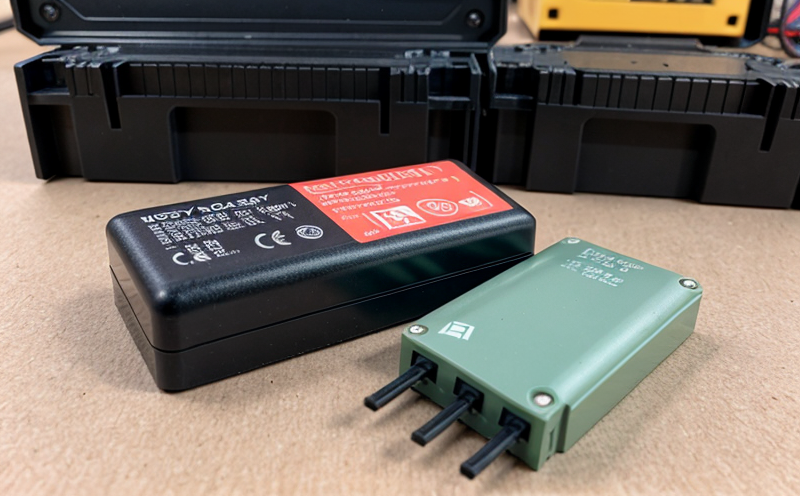ISO 12405-2 Lithium-Ion Battery Module Testing for HEVs
The ISO 12405-2 standard is a critical requirement for testing lithium-ion battery modules intended for hybrid electric vehicles (HEVs). This test ensures that the battery module meets safety, performance, and durability criteria essential for safe and efficient operation in an automotive environment. The standard provides detailed protocols for testing to ensure compliance with global safety regulations.
The process involves rigorous testing of the battery module under various stress conditions such as overcharging, overdischarge, high-temperature cycling, and low-temperature charging. These tests are designed to simulate real-world operating conditions that a lithium-ion battery might encounter during its lifetime in an HEV. This includes both laboratory-based testing using specialized equipment and field testing to assess how the battery performs under actual driving conditions.
For accurate results, it is crucial to follow precise procedures outlined in ISO 12405-2. The testing setup typically includes a battery test bench with capabilities for temperature control, voltage monitoring, current measurement, and heat dissipation assessment. The battery module is subjected to controlled charging and discharging cycles while being monitored closely by technicians.
The goal of this testing is not only to ensure the safety of the vehicle but also to extend its operational life and enhance overall performance. By adhering strictly to ISO 12405-2, manufacturers can guarantee that their battery modules meet international standards for reliability and longevity in HEVs.
It's important to note that while this test is primarily focused on lithium-ion batteries used in HEVs, the principles applied here can also be beneficial for other types of electric vehicles (EVs) as well. The insights gained from these tests contribute significantly towards improving battery technology across various applications.
The results of ISO 12405-2 testing are typically documented comprehensively and presented in a detailed report that includes data on each test conducted, observations made during the process, and conclusions drawn based on those observations. This documentation serves as a valuable resource both for regulatory compliance purposes and internal quality assurance.
In summary, ISO 12405-2 Lithium-Ion Battery Module Testing plays an indispensable role in ensuring that automotive batteries meet stringent safety requirements set forth by international bodies like the International Organization for Standardization (ISO). It helps maintain high standards of reliability and durability which are crucial factors when it comes to vehicle performance and user confidence.
Industry Applications
- Automotive manufacturers seeking compliance with global safety regulations.
- Research & development teams working on next-generation electric vehicles.
- Supplier evaluation processes within automotive industries.
- Quality assurance departments ensuring consistent product performance.
Why Choose This Test
Selecting ISO 12405-2 Lithium-Ion Battery Module Testing for HEVs is essential for several reasons. Firstly, it ensures that your products comply with international safety standards which are increasingly becoming the norm across different markets worldwide. Secondly, this testing helps identify potential issues early in the development cycle so they can be addressed before mass production begins.
Moreover, by choosing our service you get access to state-of-the-art facilities and experienced personnel who understand the nuances of battery technology. Our comprehensive approach guarantees that every aspect of your product is thoroughly examined under realistic conditions simulating real-world usage scenarios. This means not only do we check for immediate defects but also look at long-term durability which is vital given the lifespan expectations placed on modern automotive batteries.
Finally, selecting this service allows you to stay ahead of competitors by providing superior quality assurance that can be communicated effectively to customers. In today’s competitive market where safety and reliability are key differentiators, demonstrating adherence to stringent international standards like ISO 12405-2 will instill confidence in consumers about the dependability of your products.
International Acceptance and Recognition
The International Organization for Standardization (ISO) is one of the most respected bodies when it comes to setting global standards. The ISO 12405-2 standard specifically addresses lithium-ion battery module testing for hybrid electric vehicles, making it an authoritative reference point within this sector.
Compliance with these tests signifies that your product meets rigorous safety and performance benchmarks recognized internationally. This not only facilitates easier market entry into various countries but also enhances reputation among stakeholders such as customers, investors, and regulatory bodies.





